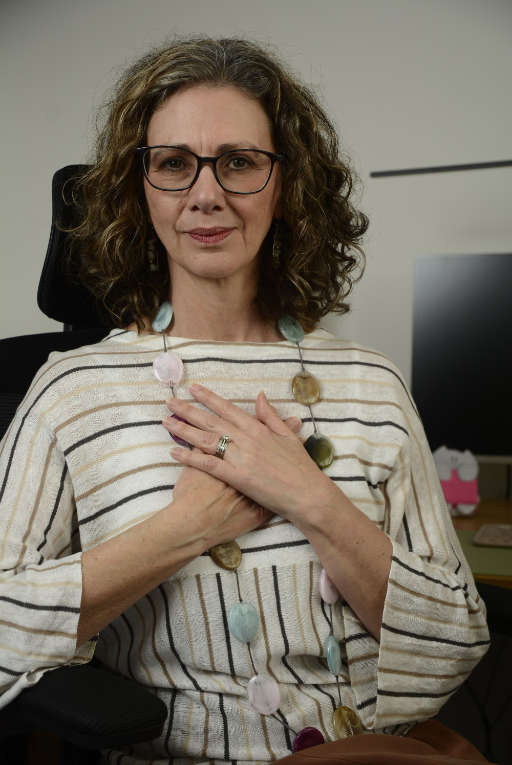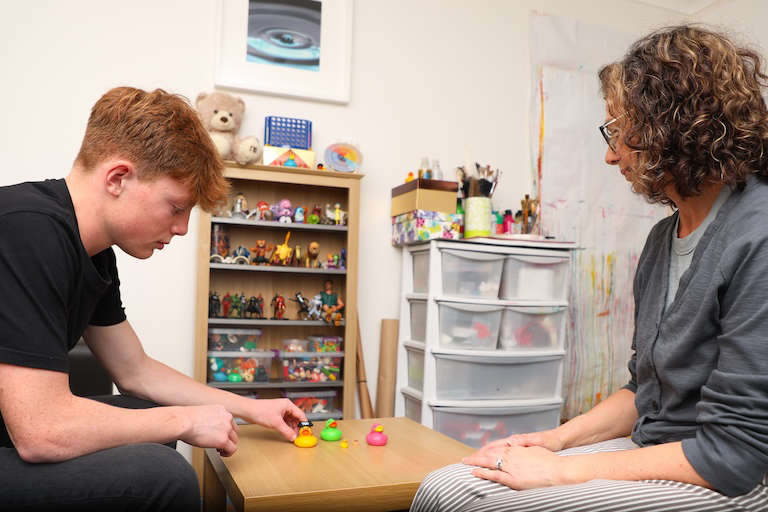Adult Therapy for Trauma and Anxiety
Therapy That Meets You Where You Are

It’s About Now, Not Back Then
There are times when everything feels overwhelming. Maybe it’s the anxiety that never really lets up, or the weight of something difficult that happened long ago but still lingers. Perhaps you’ve been doing your best to hold things together, but feel like you’re running on empty. If that sounds familiar, you’re not alone, and it doesn’t have to stay this way.
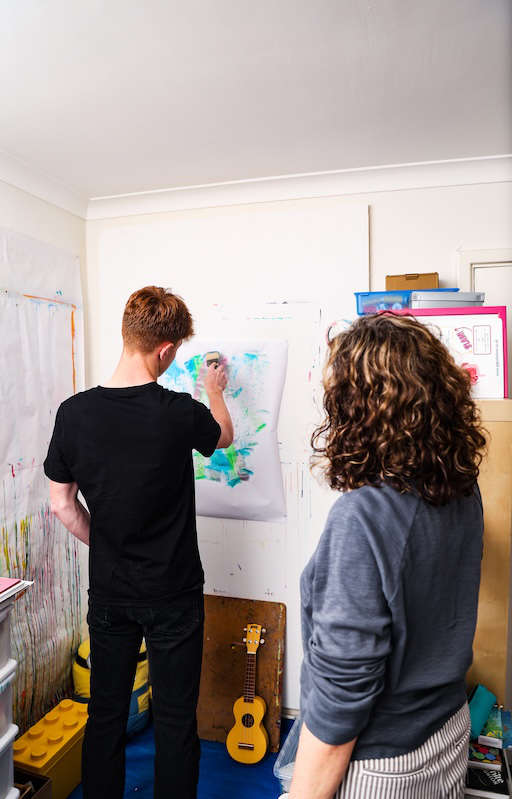


My therapy for trauma and anxiety offers a space to slow down, breathe, and begin making sense of what’s going on underneath the surface. It’s not about having all the answers, but about feeling less alone.
Sometimes it’s hard to explain exactly what’s wrong. You might just feel off, disconnected, or unusually tired. Or maybe it’s more specific, panic in certain situations, trouble sleeping, constant second-guessing.
Trauma and anxiety show up in different ways. Some people feel it in their body, others in racing thoughts that won’t slow down. And sometimes it’s both, which can be especially confusing. You’re doing all the right things, yet something still doesn’t feel right. That’s often when therapy for trauma and anxiety starts to become more than just an idea, it becomes a lifeline.
“You’re not here to be fixed, because you’re not broken. Therapy is about finding a steadier way to be with yourself, and the world, even the parts you’ve been avoiding.”
Helen
That’s where therapy can make a difference. It’s not about fixing you, because you’re not broken. It’s about creating a space where you can get curious about your patterns, understand what’s happening inside you, and start to feel more like yourself again. And when you approach it through the lens of therapy for trauma and anxiety, those patterns begin to make more sense. It can be particularly helpful if you’re looking for integrative therapy for adults that blends different approaches to meet your unique needs.
Whether you’ve been through a specific traumatic event or you’re just tired of feeling anxious all the time, therapy for trauma and anxiety can support you to pause, reflect, and begin to heal in a way that feels right for you. There’s no set script, no pressure to open up before you’re ready. Just steady, compassionate support as you find your footing.
A Space That Feels Safe
Finding the right therapist can feel like a task in itself. You want someone who gets it, who understands that opening up isn’t always easy, and that some things take time. If you’ve been carrying pain for a long time, or if anxiety has left you feeling constantly on edge, it’s understandable to feel cautious. Therapy isn’t about diving straight into the deep end. It’s about building trust, slowly, and at your pace. Therapy for trauma and anxiety offers the chance to rebuild that trust, in yourself as well as others.
The way I work is flexible, collaborative, and deeply respectful of your experience. Together we’ll shape sessions to suit what you need most, whether that’s space to talk, ways to calm a racing mind, or tools to reconnect with your body. Some people come in wanting to understand the legacy of their past. Others are just trying to get through the week. Either is fine. It all matters.
A Steady Place to Begin
There’s no pressure to be a certain way here. You don’t need to arrive with the “right” words. Some people speak through images or movement, others need silence before their voice emerges. We might use EMDR, visualisation, creative arts, grounding techniques, or simply talk things through with steady, open curiosity. This is your time. You lead. If you’ve been searching for counselling for adults that feels more like a steady conversation than a clinical process, you might find what you need here.
How Therapy for Trauma and Anxiety Can Help You Heal
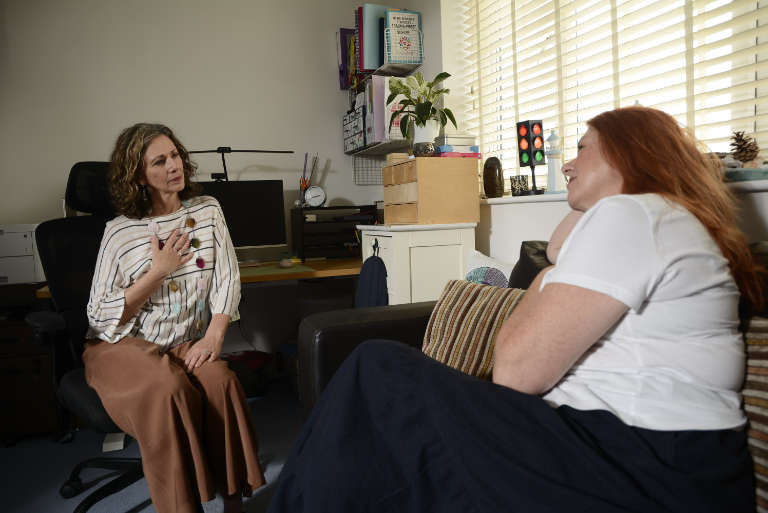
Sometimes people ask what progress in therapy really looks like. It’s a fair question. There’s no single answer, of course. But for many, it starts with small shifts, less tension in the body, a little more space between thoughts, a flicker of clarity where there was confusion.
You might find yourself breathing more easily, or noticing that certain situations don’t throw you quite as much as they used to. These are some of the ways therapy for trauma and anxiety begins to show its effects.
Other times it’s more subtle. A moment of kindness towards yourself, or realising you didn’t need to hide how you felt. You might discover a part of you that’s been quiet for a long time, or start to feel more connected to your own needs. There’s something powerful about those changes, even if they’re hard to explain.
Therapy for trauma and anxiety isn’t a quick fix. It’s a process of returning to yourself, gently, steadily, and with compassion. Some weeks will feel lighter than others. That’s normal. The aim isn’t perfection, but a growing sense of peace, presence, and choice in how you meet the world.
What to Expect From Sessions
It’s completely normal to feel unsure about what therapy will involve. You don’t need to prepare anything, and there’s no expectation for how you should show up.
At times, if the pace feels fast or overwhelming, I might gently pause with you, so we can notice what’s happening together and create space for grounding, clarity, or just a breath.
Sessions usually last around 50 minutes. We might start by exploring what’s been going on for you recently, or we might return to something that came up previously. Sometimes things come out unexpectedly, old memories, bodily sensations, bits of insight that surprise even you. That’s okay. We go at your pace. And if you’re coming in for therapy for trauma and anxiety specifically, there’s space to gently explore what safety and relief can begin to feel like.
We can also begin to think about the time between sessions, these moments matter too. Our work together isn’t just about what happens in the room; it’s also about supporting you to carry things into your day-to-day life. We can try things out in session, so you leave feeling more confident to experiment on your own, knowing you have a space, and a person, to return to and reflect on what worked and what didn’t.
Things may need to be adjusted, explored differently, or reimagined altogether. That’s part of the process. You don’t have to figure it out alone.
You won’t be analysed or judged. Instead, we’ll work together to understand what’s going on beneath the surface, so you can begin to make choices from a place of awareness rather than habit. The space is yours to use in the way that feels most useful to you. If you’re looking for therapy for adults that respects your pace and preferences, this space is designed for that.
Who This Space Is For
Therapy isn’t just for people in crisis. Sometimes it’s for those who’ve been holding it together for years, quietly coping, always being the strong one. Or for those who seem fine on the outside, but inside feel like they’re unravelling. If you’ve ever thought, “I should be able to manage this,” or “other people have it worse,” please know that your struggles are still valid.
This space is for adults of all ages and backgrounds, including those who identify as neurodivergent, highly sensitive, or simply “a bit different.” You don’t have to explain why certain things affect you so deeply, or why you find it hard to let go of something others have moved past. You’ll be met with understanding, not judgement. And if therapy for trauma and anxiety is what you’re seeking, you’ll find a grounded, steady space here to do that work.
People come here with all kinds of concerns. Some are working through specific events, grief, loss, or childhood trauma. Others are trying to navigate the day-to-day with a bit more ease. Many are somewhere in between. Whether your pain has a clear cause or feels more like a background hum that never goes away, therapy for trauma and anxiety offers a path forward.
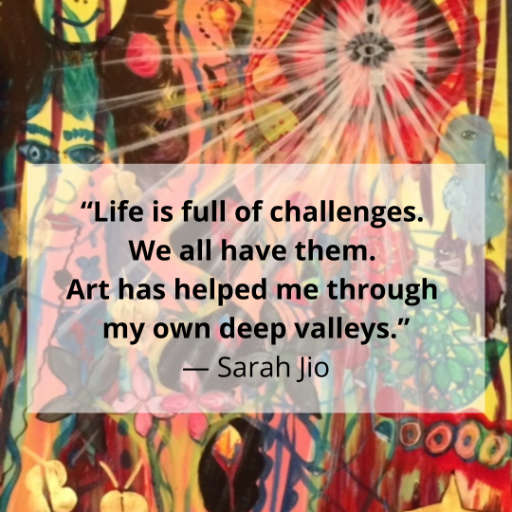
What Happens Next
Reaching out for support can feel like a big step. You might still have questions, or be unsure whether this is the right fit. That’s okay. It starts with a conversation, no pressure, just a chance to talk things through and see how it feels.
If you decide to begin therapy, we’ll agree on a regular time that works for you. We can discuss what feels manageable. Sessions are held either online or in person, depending on what suits you best. The consistency of that time, just for you, can become something steady to hold onto.
You don’t need to know where this will lead. There’s space to figure that out as we go. What matters most is that you feel safe, heard, and respected. If you’re ready to take that first step, or even just curious about what it might be like, you’re welcome to get in touch.
Let’s start with a short call or email. From there, we can see what feels right. However tangled things might feel right now, you don’t have to work through it alone. And if what you’re looking for is therapy for trauma and anxiety, that’s exactly what this space was created for.
